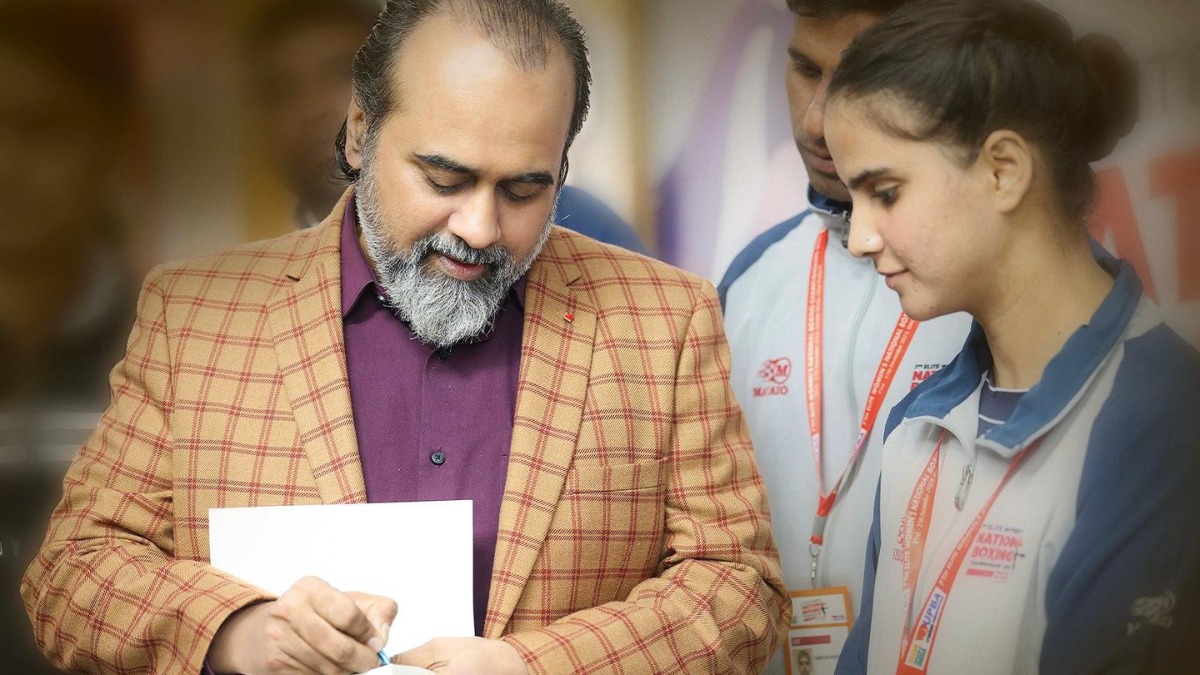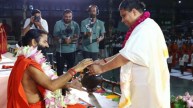When we think of spiritual teachers, we often imagine gentle voices, flowing robes, and mostly harmless advice. They usually keep their distance from messy, social questions. And when it comes to women’s rights, they either avoid the subject or say something vague about respect and tradition.
Acharya Prashant doesn’t fit that picture.
His tone is sharp. He doesn’t try to be pleasing. Instead, he asks difficult questions, the kind that many would rather avoid. And yet, or perhaps because of that, more and more women seem to be turning to him for guidance on fundamental questions of life.
His books tell the story. Titles like Women’s Revolution, Stree, and Maa deal directly with the inner lives of women, not in terms of external achievement, but in terms of identity, roles, and freedom. Stree, among these, became a national bestseller. But again, not because it flatters the reader. It shows women the subtle bondages they’ve internalized and shakes them into confronting those patterns—and working their way out.
The numbers show it, too. His Foundation’s main YouTube presence has over 55 million subscribers and thousands of videos exploring topics around identity, relationships, and inner strength—many of them directly addressing the questions and challenges women face. Talks like “You are not born to please” or “Woman, you were not created to serve” have resonated widely. In addition, the Foundation also runs a dedicated channel, Shakti, focused entirely on women-centric teachings. That’s a huge number for content that doesn’t offer motivation in the usual sense. There’s no “you are enough” or “believe in yourself” here. It’s more like—look clearly, see how you are trapped, and then ask if you really want to stay that way.
His organization, the PrashantAdvait Foundation, also reflects that pattern. In his flagship Gita course, which many would assume is male-dominated, women make up more than 50% of the participants.
It’s not just online. Recently, AIIMS Nagpur invited Acharya Prashant as the chief guest for their Women’s Day event. They specifically chose a male speaker, not as a token, but because of the kind of serious, long-term work he’s been doing in this space. That’s not something you see often — a male chief guest for a Women’s Day event.
Now, it’s important to say—he’s not trying to lead a women’s rights movement. What he’s doing is very different. Most movements talk about rights, about equality in numbers, about recognition. Acharya Prashant’s teaching, rooted in Vedanta, questions the whole idea of identity itself. He doesn’t say women should be equal to men. He says: You are not the body at all. And if you are not the body, then what is male or female? For many women, this shift in perspective helps break years of conditioning: where worth was always tied to appearance, roles, or gender-based expectations. Instead of aiming for social equality alone, the focus turns inward: to discovering a self that isn’t defined by others at all.
Some people may find his teachings unconventional. But many listeners, especially women, say they find something honest in it. It doesn’t treat them as a group needing sympathy. It speaks to them as individuals needing clarity.
One recurring point he makes is about the need for women to step out and work—not just professionally, but in the deeper sense of stepping beyond traditional roles and mental cages. He challenges the idea of staying limited to domestic life, pointing out that such choices are often driven by conditioning, not clarity. Real clarity, he says, naturally brings movement, participation, and responsibility in the larger world.
His words aren’t always easy to hear. At times, they can be direct to the point of discomfort. But many say that’s what makes them effective. It’s a bit like a good gym trainer—you don’t go to them for comfort, you go because they push you just enough to break old limits. There’s no talking down, no oversimplifying. The approach treats the listener as someone capable of facing the truth, not someone in need of gentle handling.
If you look around the spiritual landscape, there aren’t many figures right now who are speaking directly and unapologetically on these matters. That might be why a certain kind of listener—one who’s tired of platitudes and looking for something deeper—is slowly but surely finding her way to this voice.
Acharya Prashant’s message to women isn’t, ‘you are special.’ Rather, it’s, ‘you are not who you think you are.’ And for those ready to hear it, that can be the beginning of something new.
Also Read: Early Monsoon In Himachal Caused Unexpected Flash Floods












